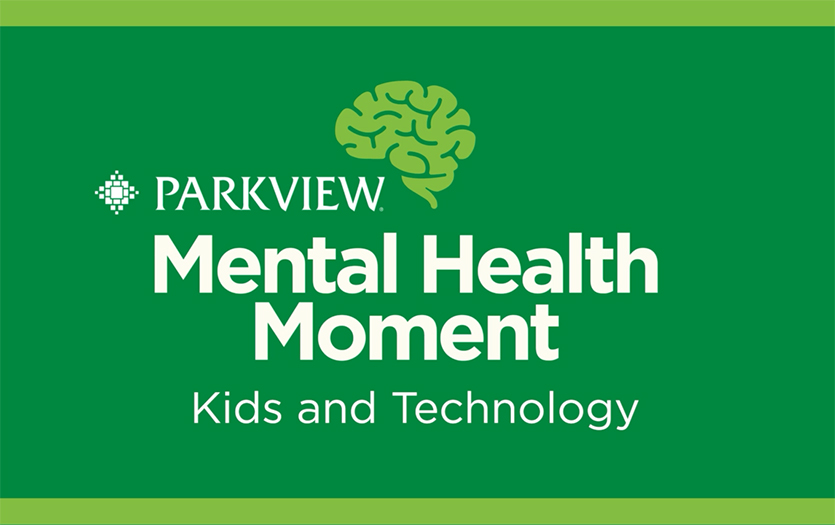
This post was written by Alison Johnson, MS, RDN, LD, clinical dietitian, Parkview Health.
The food we consume provides energy for our physical well-being and is also responsible for fueling our brain and mental performance. Making poor food choices or developing unhealthy eating habits can lead to energy slumps, low mood and difficulty sleeping. In this post, we examine how eating regularly and incorporating more whole foods into your diet can be the key to supporting healthy brain function.
Restrictive diets
Individuals following restrictive diets and not consuming adequate nutrition from a diverse range of foods can experience changes in mental functioning. Restricting the intake of certain food groups, especially those that contain fiber, can decrease the variety of healthy bacteria in the gut. Individuals who follow these eating patterns often feel sad and hopeless and have lower problem-solving abilities.
Restrictive diets can also include rules regarding the timing of food consumption. When individuals go long periods without eating, they can experience a drop in blood sugar levels, which can lead to an increase in fatigue, irritability and mood swings. Overeating and undereating can both lead to decreased energy and low mood. It’s important to eat moderate-sized meals on a consistent schedule to help maintain blood sugar and mood.
Simple and complex carbohydrates
The brain runs primarily on glucose, which is produced from digesting carbohydrate-rich foods. Following a low-carbohydrate diet can make you feel fatigued and irritable, as the brain is no longer receiving an adequate glucose supply. Choosing the right type of carbohydrates is key. Simple or refined carbohydrates like sugary beverages, refined grains and sweets are digested and absorbed faster, causing blood sugar and insulin levels to rise. Consuming highly refined carbohydrates is associated with symptoms of low mood and depression.
On the other hand, complex carbohydrates are the best source of energy. Due to a higher fiber content, foods such as whole grains, fruits and vegetables are digested and absorbed at a slower rate. Complex carbohydrates contain anti-inflammatory properties, which can help prevent and manage mental health disorders like depression.
Fiber
Eating more fiber-rich plant foods, such as beans, lentils, nuts and seeds, also reduces levels of inflammation in the body. Increased inflammation is linked not only to depression but it is also associated with many other illnesses including:
- Alzheimer’s disease
- Autoimmune diseases
- Cancer
- Chronic obstructive pulmonary disease (lung disease)
- Chronic pain
- Heart disease
- Inflammatory bowel disease
- Type 2 diabetes
- Obesity
These foods also support healthy bacteria living in the large intestine, promoting a brighter mood by reducing depression and anxiety symptoms.
Protein and fat
Protein is composed of amino acids that contribute to hormone function. For example, the amino acid tryptophan helps increase the production of serotonin in the brain. Serotonin is the happy hormone and contributes to feelings of calm and relaxation. If this amino acid is not present, levels of serotonin can decrease, leading to depression and poor mood. Consuming lean protein such as eggs, fish, poultry, beans and legumes at each meal ensures an adequate supply of these mood-regulating amino acids.
Additionally, these proteins are higher in healthy fats. Opting for a diet containing unsaturated fats, specifically omega-3 polyunsaturated fats found in fatty fish, seafood, flaxseeds, chia seeds and walnuts, may help protect against depression and improve brain health.
Alcohol and caffeine
Excessive consumption of alcohol and caffeine can negatively impact mood and emotional well-being. Alcohol is a depressant that suppresses brain activity and worsens symptoms of depression. It can also affect your sleep quality, making you feel groggy rather than refreshed in the morning. Because certain vitamins are necessary to break down alcohol, excessive intake can lead to vitamin deficiencies, thus causing brain damage. This results in changes in memory, which limits problem-solving and decision-making abilities.
Similarly, caffeine is a stimulant that also disrupts sleep and causes difficulties concentrating. Consuming excessive amounts of alcohol and/or caffeine makes it easier to become dehydrated. The brain is comprised of over 70% water. Inadequate water intake can cause headaches, poor concentration and low mood.
Final thoughts
The foods we choose to fuel our body can profoundly affect mood, energy levels and sleep patterns. Consistently eating whole meals that include complex carbohydrates, lean proteins and healthy fats while limiting alcohol and caffeine can positively impact your mood and emotional well-being.
Learn more
Your health and well-being encompasses every part of your life. The Parkview Center for Healthy Living and our team of registered dietitian nutritionists offer monthly programming to help educate you on the latest nutrition trends, meal planning ideas, heart-healthy diets and eating strategies for greater well-being. If you want to attend a class, schedule an appointment or ask a question, call us at 260-266-6500 or toll-free at 844-835-0003.




